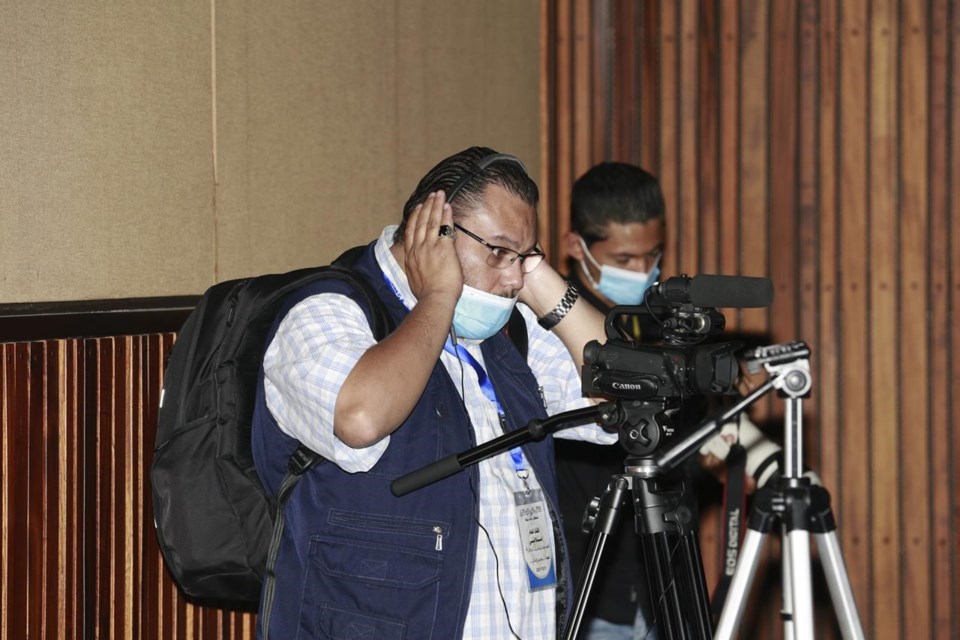CAIRO (AP) — Adel Omran, a video producer in chaos-stricken Libya for The Associated Press, has died. He was 46.
Omran died at his family home in the Egyptian Mediterranean city of Port Said early Friday after suffering a heart attack, his family said.
Before joining the AP more than a decade ago, Omran worked as a hotel manager in the Egyptian resort town of Sharm el-Sheikh. He decided to return to his native Libya to work as a journalist in the aftermath of the Arab Spring.
He became a pillar of AP coverage of the NATO-backed uprising that toppled longtime Libyan dictator Moammar Gadhafi in 2011 and led to his killing. Omran was a mentor to many of the country's younger journalists.
“During a difficult period in the country’s history, Adel was able to network and establish contacts and stringers across Libya,” said Derl McCrudden, AP’s vice president and head of global news production. “He also had a competitive desire to get the story out and this was a great combination.”
Omran led AP's video coverage of the civil war in Libya and abuses of migrants across the North African country, which have become a major transit point for people fleeing conflicts and poverty in Africa and the Middle East. He was also a video journalist himself, who could shoot and produce compelling stories.
He had a strong judgement for when events would likely turn into big news. Most recently, Omran’s fast reaction to reports of devastating flooding in the city of Derna, Libya, helped the agency be among the first to break the news of the growing death toll.
Omran is remembered for his resounding laugh and his constant willingness to help others, often stepping outside the scope of his own job to help a colleague out. In the unpredictable and often dangerous landscape of Libya, he navigated his way among the country's many powerbrokers with ease.
Rob Celliers, former South Africa senior producer for the AP, covered the 2011 uprising in Libya and first approached Omran about working for the news agency. He says he was immediately impressed by Omran's instinctive understanding of the fast-paced tempo of the work.
“Not only did I find a great colleague I also found a great, great friend who always gave me a warm greeting,” he said. “So very sad and unexpected you’re leaving us so soon, rest now my friend.”
In recent years, Adel worked in the Libyan capital of Tripoli, where he covered the country's faltering steps towards political stability. He hoped, like many, to see calmer days in his home country. The loss of another colleague, AP contributor Mohamed Ben Khalifa, who died covering clashes between militias in Tripoli in 2019, affected him greatly.
“Adel's work brought him in daily contact with human suffering and frustrated hopes, but despite that, he remained a person whose positive outlook was contagious,” said Maggie Hyde, AP news director for Egypt, Libya, Sudan and Yemen. “He brought that with him to every aspect of the job."
Omran’s body was transferred to Libya for burial in his home city of Benghazi. He is survived by his 8-year-old son Faris and wife, Rasha, who live in Port Said, Egypt.
Samy Magdy, The Associated Press



